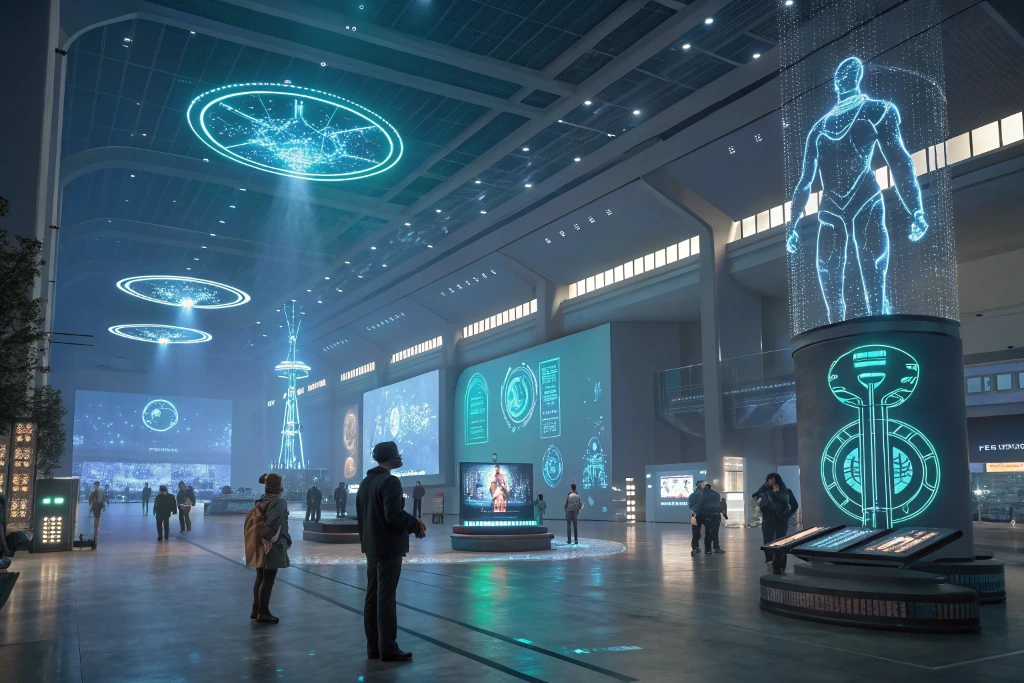The AI Boom: How Artificial Intelligence is Shaping the Future

Artificial Intelligence (AI) has transitioned from a futuristic concept to a transformative force shaping various sectors and industries. The AI boom is revolutionizing the way we live, work, and interact, making it essential to understand its impact and potential. This article explores how AI is influencing the future, the advancements driving this change, and the challenges and opportunities it presents.
The Evolution of AI
Artificial Intelligence has evolved significantly since its inception. Early AI systems were rule-based, relying on pre-defined instructions to perform tasks. Today, AI encompasses a broad spectrum of technologies, including machine learning, natural language processing, and neural networks. These advancements enable AI systems to learn from data, adapt to new situations, and make decisions with minimal human intervention.
AI in Everyday Life
AI’s integration into daily life is becoming increasingly apparent. Virtual assistants like Siri, Alexa, and Google Assistant are now commonplace, helping users manage tasks, answer questions, and control smart home devices. AI algorithms personalize recommendations on streaming platforms such as Netflix and Spotify, enhancing user experiences by predicting preferences.
Additionally, AI-driven applications are making significant strides in healthcare. From predictive analytics that identify potential health issues to AI-powered diagnostic tools that assist in detecting diseases earlier, the technology is improving patient outcomes and transforming medical practices.
Transforming Industries
Healthcare
AI’s impact on healthcare is profound. Machine learning models analyze vast amounts of medical data to identify patterns and predict outcomes. This capability aids in early disease detection, personalized treatment plans, and drug discovery. For instance, AI algorithms can process medical images to detect abnormalities such as tumors, often with higher accuracy than traditional methods.
Finance
The financial sector benefits from AI through enhanced fraud detection, algorithmic trading, and customer service automation. AI-powered systems analyze transaction patterns to identify fraudulent activities in real time. Additionally, robo-advisors provide personalized investment recommendations, democratizing financial planning and management.
Retail
In retail, AI improves customer experiences and operational efficiency. Chatbots handle customer inquiries, while AI-driven inventory management systems optimize stock levels and reduce waste. Personalized marketing campaigns, powered by AI, target consumers with relevant offers based on their browsing and purchasing history.
Transportation
Autonomous vehicles represent one of the most exciting AI applications. Companies like Tesla and Waymo are developing self-driving cars that promise to revolutionize transportation by enhancing safety, reducing traffic congestion, and providing mobility solutions for individuals unable to drive.
Challenges and Ethical Considerations
While AI offers numerous benefits, it also presents challenges and ethical considerations. One major concern is data privacy. AI systems require large amounts of data to function effectively, raising questions about how personal information is collected, stored, and used.
Bias and fairness in AI algorithms are another critical issue. AI systems trained on biased data can perpetuate and amplify existing inequalities, leading to unfair outcomes in areas such as hiring, law enforcement, and lending. Ensuring that AI technologies are transparent and equitable is essential for building trust and achieving societal benefits.
The Future of AI
The future of AI holds tremendous potential. As technology continues to advance, we can expect AI to drive innovation across various fields. Here are some key areas where AI is likely to make a significant impact:
AI and Creativity
AI is beginning to explore the realms of creativity, generating art, music, and literature. While still in its early stages, this trend could lead to new forms of artistic expression and collaboration between humans and machines.
AI in Education
Personalized learning experiences powered by AI can tailor educational content to individual students’ needs, improving engagement and outcomes. AI tutors and learning platforms may become integral components of modern education systems.
AI and Sustainability
AI can play a crucial role in addressing environmental challenges. From optimizing energy consumption to monitoring deforestation and predicting climate patterns, AI technologies have the potential to support sustainability efforts and combat climate change.
The AI boom is reshaping our world, offering both opportunities and challenges. As AI technologies continue to advance, they will drive innovation and transformation across various sectors, from healthcare and finance to retail and transportation. However, it is crucial to address ethical considerations and ensure that AI is developed and implemented in a way that benefits society as a whole. Understanding and harnessing the power of AI can lead to a future where technology enhances our lives, solves complex problems, and fosters a more equitable and sustainable world. Embracing the AI revolution requires collaboration, transparency, and a commitment to using technology for the greater good, paving the way for a brighter, more innovative future.
Outlook Times
Explore the journeys of today’s most successful business leaders, uncovering the strategies, challenges, and triumphs that define their paths to success.
Trending
-
 Shaping Tomorrow: The Most Impactful Personalities of 2025
Shaping Tomorrow: The Most Impactful Personalities of 2025 -
 Dr. Harsha Thennarasu
Dr. Harsha Thennarasu -
 Vaibhav Sharma
Vaibhav Sharma -
 Ignacio Bonasa
Ignacio Bonasa -
 Beyond AI Hype: The Next Wave of Technologies Reshaping 2025
Beyond AI Hype: The Next Wave of Technologies Reshaping 2025 -
 Are Hybrid Work Cultures Sustainable? The Truth Behind the 2025 Corporate Experiment
Are Hybrid Work Cultures Sustainable? The Truth Behind the 2025 Corporate Experiment -
 “When AI Directs the Camera: Will Sora 2 Rewrite the Future of Filmmaking?
“When AI Directs the Camera: Will Sora 2 Rewrite the Future of Filmmaking? -
 Top Trailblazing Leaders to Watch in 2025
Top Trailblazing Leaders to Watch in 2025 -
 Top 5 Power Profiles: Redefining Global Leadership in 2025
Top 5 Power Profiles: Redefining Global Leadership in 2025 -
 Icons of Impact: Legendary Leaders Shaping Success in 2025
Icons of Impact: Legendary Leaders Shaping Success in 2025 -
 Ronit Pinto
Ronit Pinto -
 Beyond Limits: How Alloy Is Redefining Fitness Franchising
Beyond Limits: How Alloy Is Redefining Fitness Franchising -
 Firdaus Nagree
Firdaus Nagree -
 The Most Promising Tech Innovation of the Future
The Most Promising Tech Innovation of the Future -
 AI Excellence in Business Process Management
AI Excellence in Business Process Management -
 Iconic Voice in Soulful Leadership & Cultural Impact – 2025
Iconic Voice in Soulful Leadership & Cultural Impact – 2025 -
 Visionary Leaders: The Most Trailblazing Personalities Shaping 2025
Visionary Leaders: The Most Trailblazing Personalities Shaping 2025 -
 The Power Players: Most Dynamic and Impactful Personalities to Follow in 2025
The Power Players: Most Dynamic and Impactful Personalities to Follow in 2025 -
 The Unshakable Pillar of Modern Healthcare, 2025
The Unshakable Pillar of Modern Healthcare, 2025 -
 Dr. Aidan Mouat
Dr. Aidan Mouat
